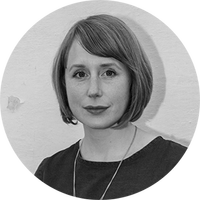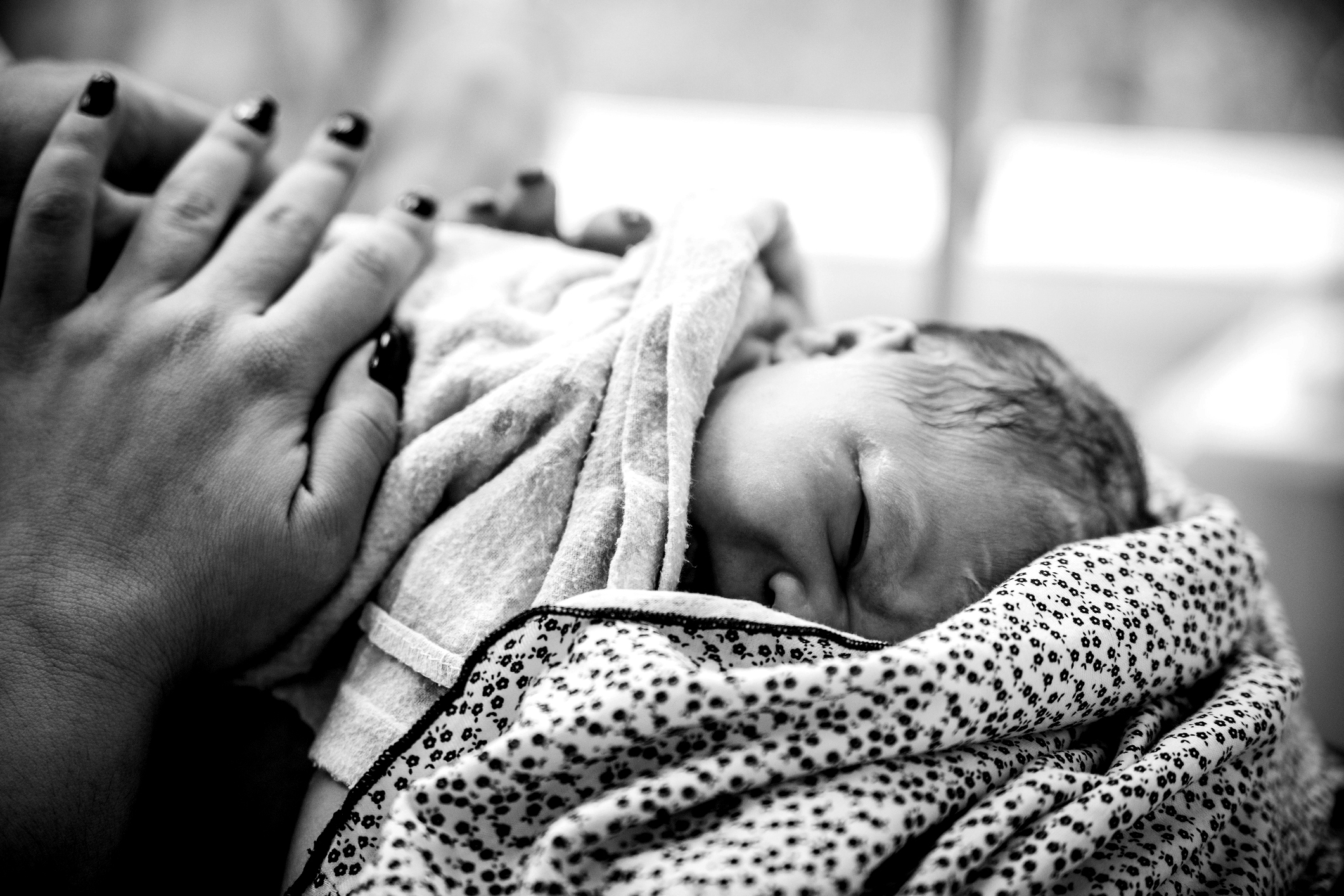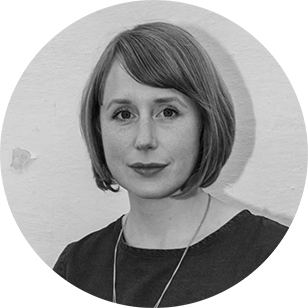Birth doulas are misunderstood. Here's what we actually do.
The myth that what we do is just a luxurious add-on for the rich is far from the truth


A free daily email with the biggest news stories of the day – and the best features from TheWeek.com
You are now subscribed
Your newsletter sign-up was successful
I was not supposed to be a birth doula. But somehow, here I am.
I do not believe in homeopathy. I like randomized controlled trials and reason. I last wore a tie-dyed skirt when I was 11. There wasn't a whiff of patchouli in my upbringing — my father is a doctor and my mother a radiographer. I spent my toddlerhood making paper dollies with Betty the X-ray technician in the dim red glow of in a hospital darkroom.
So how did I end up in the world of doulas — a profession stereotyped as being full of crystal-waving hippies and earth mamas?
The Week
Escape your echo chamber. Get the facts behind the news, plus analysis from multiple perspectives.

Sign up for The Week's Free Newsletters
From our morning news briefing to a weekly Good News Newsletter, get the best of The Week delivered directly to your inbox.
From our morning news briefing to a weekly Good News Newsletter, get the best of The Week delivered directly to your inbox.
Before I answer that, it's important to explain what, exactly, a doula is, especially as the role grows in popularity and gains attention in the public eye. Meghan Markle has reportedly hired a U.K. doula, like myself, to support her and Prince Harry through her pregnancy and upcoming birth. As a result, the media spotlight is shining on my profession. But the myth that what we do is just a luxurious add-on for the rich is several trimesters away from the truth.
By definition, a doula is someone who provides support to a birthing mother, her partner, and her baby. This support isn't medical — we don't give exams or offer medical advice. We are not midwives or doctors. Our work is in caring for the practical and emotional needs of laboring women and their partners. We signpost to information. We advocate. We make nourishing food. We listen. We fill a role that women have filled for each other for millennia. This kind of non-judgmental, experienced support from a layperson can make a profound difference in the transition from individual to parent, and the research backs this up.
One study found that women who had a doula-like person beside them continuously throughout their childbirth needed fewer cesareans, less pain relief, had shorter labors, and were more satisfied overall with their births. Their babies had a reduced chance of being born with low APGAR scores, and these benefits were most pronounced when this support person was not a family member, a friend, or a member of medical staff — in other words, when they were performing the role of a doula. In the U.S., one survey found that roughly 6 percent of birthing mothers have used a doula during childbirth; in hindsight, 27 percent said they wished they had.
I know all this. But I am always less compelled by these findings than by my knowledge of what my human-comfort-blanket-of-a-doula did for me. The doulas I hired to support my husband and me through two pregnancies, births, and the newborn days changed my experiences as a mother — as well as my world view. My doulas reminded me to ask good questions when my water broke before labor, so that I was always at the center of my pregnancy and birth. In the tear-filled first days of new motherhood, my doulas arrived at my house, bringing stew that nourished my body, and wisdom that nourished my soul.
A free daily email with the biggest news stories of the day – and the best features from TheWeek.com
Then, in the weeks after my pregnancies, and as I spent the night-time hours relentlessly nursing, all the things I understood about myself and the world whirled around above my head, breaking up, reforming, and eventually falling back into my hands in a different order, stuck back together with a mixture of love, breast milk, and rage. Though I'd been working in the human rights world before I became a mother, it took becoming a parent to see that the birthing experience is fraught with inequities and injustices for women. I discovered that the pressure from society to give birth "naturally," to breastfeed exclusively, and to be the perfect mother wasn't matched with adequate support for most. Women are still making sacrifices and finding their careers derailed in ways I'd naively presumed were outdated. If it felt unfair to me — a middle-class, white woman — I knew others were having a much harder time. I felt compelled to become a doula.
A doula is someone who knows you and who knows birth, who will not tell you what to do, but who will help you work it out for yourself. Someone who believes in you and won't flinch at picking up your stained underwear from the floor. She will answer the phone when you call at 4 a.m., the sound of a newborn wailing in the background, and she will listen without judgment as you say you are worried you made a terrible mistake with this whole motherhood thing. With her support, you will know this feeling is normal and that it will pass.
A doula spots your moment of fear and reassures you in a way that is meaningful to you because she knows you — and you believe her because you know her. A doula helps you navigate a system that can be unfriendly to women and who understands exactly why you find pelvic exams triggering. Perhaps she is someone who was there with you and your partner when you birthed your stillborn baby. She took the photos of him that you keep in a memory box, and she cried with you and for you. Through that experience, she is someone who has a glimpse into the complex tangle of feelings you have for this rainbow child you are giving birth to today. Later she will listen when you tell her about them, but right now she'll breathe with you through each contraction and wipe the sweat off your forehead.
My job as a doula is to walk alongside women and their families on the unique-yet-everyday journey in and out of childbirth: listening to them, holding their tea; their hands; their feelings. Reminding them that they matter at a time when their mental health is most at risk and when it is easy to feel they have been completely erased by the process of becoming a mother.
I work with women a little like Megan Markle, but mostly I work with women who face motherhood without the privileges from which Megan benefits. I've learned that structural, medical, and socio-cultural issues collude to violate women's rights and make them less safe in their maternity care. Some women will return from the hospital to a women's refuge, so they hope desperately to avoid a cesarean birth, because there is absolutely no one to help them do the heavy lifting. Others, some of the many survivors of sexual violence, will be so triggered by the routine interventions in childbirth that they fight hard for a cesarean or a hands-off homebirth to try and keep post-traumatic stress disorder at bay.
What I've seen as a doula — the injustices served to mothers — took me on a journey to co-founding a human rights in childbirth charity. I then felt I needed to become a writer so I could try and tell the world about the important, unsanitized truths women whispered in my ear in between their contractions.
Doulas are not a fashionable new status symbol, but an innovation based on a basic human need that the industrialized version of childbirth (a version that, it must be said, has saved lives, innovated, and advanced the world) omitted from its plans. I work with many brilliant obstetricians and midwives, and sometimes their work happily overlaps with what I do. But I will always defend a birthing woman's desire to have a person just for them — whose only job is the hand-holding, the whispering of sweet nothings, and the listening. A doula's job is to love.
Rebecca Schiller is a U.K.-based journalist, a founder of the human rights in childbirth charity Birthrights, and the author of several books including Your No Guilt Pregnancy Plan: A Revolutionary Guide to Pregnancy, Birth, and the Weeks That Follow. Her work has appeared in The Guardian, Stylist, The Pool, Vice, The Telegraph, and Marie Claire, among other publications. She lives on a smallholding with her husband and two children.
-
 Nuuk becomes ground zero for Greenland’s diplomatic straits
Nuuk becomes ground zero for Greenland’s diplomatic straitsIN THE SPOTLIGHT A flurry of new consular activity in the remote Danish protectorate shows how important Greenland has become to Europeans’ anxiety about American imperialism
-
 ‘This is something that happens all too often’
‘This is something that happens all too often’Instant Opinion Opinion, comment and editorials of the day
-
 House votes to end Trump’s Canada tariffs
House votes to end Trump’s Canada tariffsSpeed Read Six Republicans joined with Democrats to repeal the president’s tariffs
